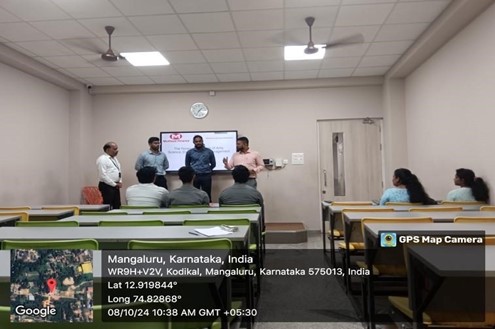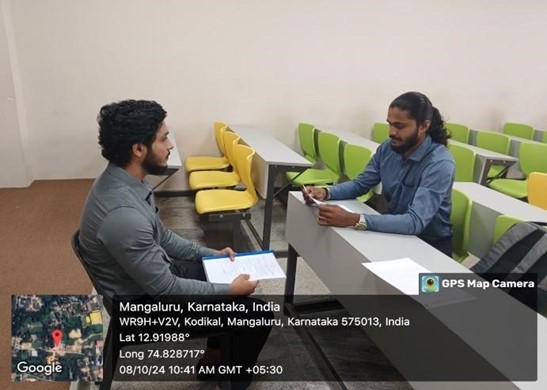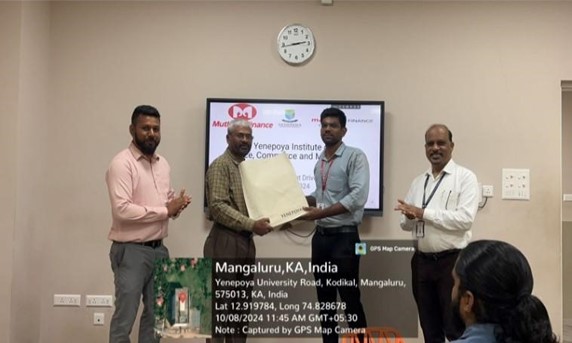Master of Business Administration
The Master of Business Administration (MBA) is an in-campus two years programme recognized by AICTE. The Post Graduate Management Program is designed to develop the skills required for careers in business, management and technology. Students engage the first two semesters in the classroom, taking the foundation and the core courses. In the third semester learn discipline specific core/electives, in the last semester students do their research project work in case of Coursework + Research Track for eight weeks to develop and demonstrate competency in practice. The students opting Coursework Track, in the fourth semester, students do their internship in their areas of specialization.
They intern for a whole semester to practice strong leadership, analytical and management skills; including the ability to motivate teams, communicate effectively and lead organizational change initiatives. Supervised internship is completed at locations in and around the area, or in locations outside of the area with prior approval from the Principal. During the third and fourth semester the students further specialize in the areas chosen by them.
-
Foundation in Key areas of Management
Provide students with an advanced understanding of key business concepts, theories and frameworks across various functional areas such as healthcare management, logistics, finance, marketing, operations, strategy and analytics. -
Career Readiness
Prepare students to synthesize, analyze, and integrate their knowledge of business disciplines to provide innovative and credible solutions to organizational problems and opportunities -
Articulation
Enhance written and oral communication skills to enable students to articulate ideas clearly, persuasively, and professionally in various business contexts. -
Empowerment and Industry Readiness
Cultivate leadership skills by offering coursework, activities and experiences that help students develop the ability to lead teams, make strategic decisions and manage organizational change. -
Problem Solving and Critical Thinking
Foster analytical thinking and problem-solving abilities through case studies, simulations and experiential learning opportunities that challenge students to address complex business challenges.
Industry Based Learning System
- Experiential Learning Opportunities
- Training by Industry Experts
- Experienced Teaching Faculty
- Industry Collaboration
- Entrepreneurship Support
- Diverse and Inclusive Community
- Leadership Development
- Industrial Visits
- Career Services and Support
Specialization Offered
- Digital Business Management with Minor in Data Analytics
- Hospital Administration with Minor in Medical Tourism
- Marketing and Finance with Minor in Business Analytics
- Logistics and Supply Chain Management
- Innovation, Entrepreneurship and Venture Development
- Stock Broking and Portfolio Management
Competency Enhancement
- Communication and Presentation Skills
- Leadership Development
- Entrepreneurial Mindset
- Teamwork and Collaboration
- Technology Proficiency
- Core Business Skills Development
The MBA program at Yenepoya Institute of Arts, Science, Commerce and Management (YIASCM) is designed to develop competent business leaders with strategic thinking, analytical decision-making, and managerial excellence. The curriculum is industry-oriented and aligned with NEP and AICTE guidelines, offering dual specializations in areas such as Human Resource Management, Marketing, Finance, Business Analytics, and Logistics & Supply Chain Management. The program emphasizes experiential learning through case studies, simulations, live projects, industrial visits, and capstone projects that integrate theoretical knowledge with practical business challenges. It fosters entrepreneurial thinking and innovation through an active Entrepreneurship Cell (E-Cell), startup mentorship programs, and incubation support.
Students are mentored by a blend of experienced faculty members and industry professionals who bring contemporary business insights into the classroom. Regular guest lectures, management fests, and seminars enhance industry interaction and knowledge exchange. A strong focus is placed on developing leadership qualities, communication skills, and ethical business values. Comprehensive placement training, internships, and career guidance ensure that students are well-prepared to meet industry expectations. The program’s robust placement support connects students with leading organizations across diverse sectors. With a commitment to holistic development, the MBA program at YIASCM nurtures future-ready managers, entrepreneurs, and socially responsible professionals capable of driving sustainable organizational growth.
Fundamentals to Business Analytics with Excel - IBM

Design Thinking - TCSiON
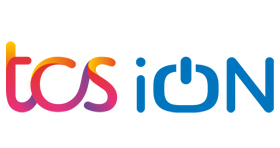
ISDC
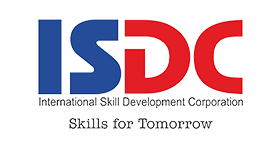
The curriculum framework focuses on practical application of theoretical concepts and is facilitated with substantial coverage of practical, field work and experiential activity. The platform aims at equipping the post-graduates with necessary skills for marketing, finance, hospital administration, analytics and management related careers. MBAs with a specialization in analytics are well-positioned for a variety of career opportunities in today’s data-driven business landscape. The combination of business knowledge and analytics skills equips post graduates with a versatile skill set that is highly valued across various industries and functional areas.
The MBA graduate can work in multiple areas like Industries, Bank, Multinational Companies, Financial Organization, Business Consultancies, Analytics, Tax Consultancies, Educational Institutes, Export Companies, Hospitals. They leverage their business acumen along with their technical skills to analyze data, derive insights and make data-driven recommendations to improve business performance.
MBA in Digital Business Management with Minor in Data Analytics
Eligibility Criteria:
- Bachelor’s /Honors degree in any discipline in a university established under law and recognized by the University Grants Commission. (However, candidates must have Statistics/Science/Math’s/Quantitative Techniques and Analysis or equivalent as one of the subjects in graduation)
- Minimum 60 percent marks or equivalent CGPA in graduation (45% for SC/ST category–I candidates)
- Apart from the above criteria, the students need to have a strong technical aptitude and a keenness to learn new digital concepts.
MBA in Hospital Administration with Minor in Medical Tourism
Eligibility Criteria:
- Bachelor’s/Honors degree in any discipline in a university established under law and recognized by the University Grants Commission. (However, candidates must have Statistics/ Science/Math’s/ Quantitative Techniques and Analysis /Allied Health Science or equivalent as one of the subjects in graduation)
- Minimum 60 percent marks or equivalent CGPA in graduation (45% for SC/ST category–I candidates)
- Apart from the above criteria, the participants need to have a strong technical aptitude and a keenness to learn HAMT and new digital concepts.
MBA in Marketing and Finance Management with Minor in Business Analytics
Eligibility Criteria:
- Bachelor’s/ Honors degree in any discipline in a University established under law and recognized by the University Grants Commission. (However, candidates must have Statistics/Science/ Math’s/ Quantitative Techniques and Analysis or equivalent as one of the subjects in graduation)
- Minimum 60 percent marks or equivalent CGPA in graduation (45% for SC/ST category–I candidates)
- Apart from the above criteria, the participants need to have a strong technical aptitude and a keenness to learn new digital concepts.
MBA in Innovation, Entrepreneurship and Venture Development
Eligibility Criteria:
- Bachelor’s/ Honors degree in any discipline in a university established under law and recognized by the University Grants Commission. (However, candidates must have Statistics/Science/ Math’s/ Quantitative Techniques and Analysis or equivalent as one of the subjects in graduation)
- Minimum 60 percent marks or equivalent CGPA in graduation (45% for SC/ST category–I candidates)
- Apart from the above criteria, the participants need to have a strong technical aptitude and a keenness in financial and stock broking aspects.
- MBA (Innovation, Entrepreneurship and Venture Development)
- MBA (Stock Broking and Portfolio Management)
- MBA (Digital Business Management with Minor in Data Analytics)
- MBA (Hospital Administration with Minor in Medical Tourism)
- MBA (Marketing and Finance with Minor in Business Analytics)
- MBA (Logistics and Supply Chain Management)
PO1: Knowledge and Understanding: Gain knowledge of recognising the functions of business, identifying potential business opportunities, evolution of business enterprises and exploring entrepreneurial opportunities within the purview of legal and regulatory frameworks.
PO2: Environment and Sustainability: Understand the impact of the management decisions in societal and environmental contexts; demonstrate the knowledge of and need for sustainable development.
PO3: Social Responsibility and Ethics: Apply ethical principles of business decisions and demonstrate integrity, honesty and social responsibility in their professional conduct.
PO4: Problem Identification and Solution: Apply functional knowledge to identify and solve business management problems using appropriate qualitative and quantitative tools and techniques.
PO5: Management Decision Making:Analyze business opportunities and challenges using appropriate business data, relevant data analysis techniques and logical thinking to suggest suitable solutions for business decision making.
PO6: Management Methodologies: Evaluate the use of management concepts for business decision making.
PO7: Business Research: Critical review of research literature, identify and articulate the research problem, apply appropriate research methodologies, tools and techniques to solve research problems.
PO8: New Knowledge Creation: Create frameworks and models using specialized functional and statistical methodologies, tools and techniques for management decision making.
PO9: Leadership and Teamwork: Function effectively as an individual, and as a member or leader in diverse teams, in multidisciplinary settings, cross-cultural and global teams.
PO10:Communication: Effectively communicate with prospective employers, post-employment being able to convey management decisions to the organization and its stakeholders appropriately (comprehend and write effective reports, make effective presentations, and give and receive clear instructions, use of digital communication, social networking platforms and so on)
PO11: Technology Proficiency: Proficient in using technology tools and platforms relevant to business operations, such as data analysis software, digital marketing platforms, enterprise resource planning systems and emerging technologies.
PO12: Lifelong Learning: Analyze the need for ability to engage in independent and lifelong learning in a broader business context and adapt according to the changes.
Meet our Experts
coming soon . . .
coming soon . . .
The Department of Post Graduate Studies in Commerce and Management (MBA) conducted an on-campus placement drive on October 8, 2024, at the Yenepoya Kulur campus. Muthoot Finance Pvt. Ltd. and Mahindra Finance participated in this drive, which was open to MBA and BBA students. The 2022-24 batch of postgraduate and undergraduate students showed interest in this event.
Company Participation Summary:
| Company Name | Registered Participants | Students Participated | Candidates Selected |
| Muthoot Finance | 20 | 6 | 3 |
| Mahindra Finance | 20 | 6 | 6 |
Student Participation Breakdown
- MBA Students Participated: 3
- UG Students Participated: 3
coming soon . . .















